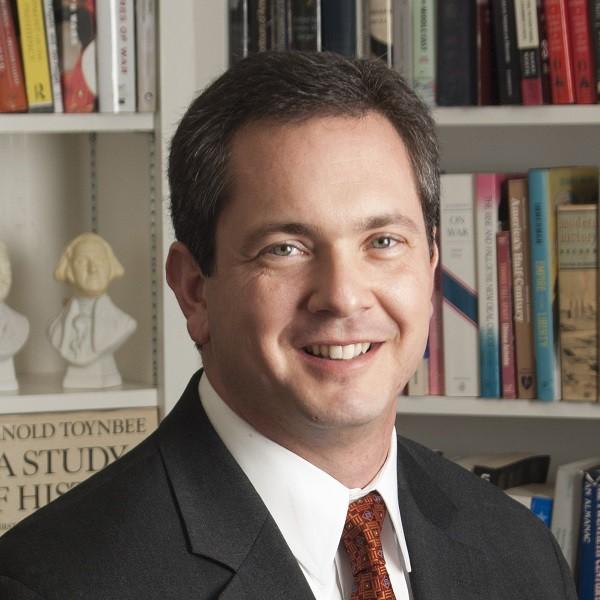Most days, you can find Dr. Jeffrey Engel in his office surrounded by history tomes. The Director of the SMU Center for Presidential History at SMU has filled his office with the work presidential historians, including his own.
Dr. Engel was attracted to this area of study because he believes in the concept of narrative history. That is, an idea that history should be told in a form where it is accessible to people from all walks of life.
“I remember feeling a profound sense of shame because a proper human should know events from the past,” Dr. Engel said, while reflecting on a moment from his childhood that reinforced his desire to study and make a living as a historian.
That desire still drives Dr. Engel and will be evident in his latest book, Impeachment, which releases on Oct 16 by Penguin Random House. The section [SL1] he authored is about the Constitution and its description of impeachment. Engel’s co-authors, Jon Meacham, Timothy Naftali and Peter Baker, explain the historical precedent for impeachment by examining three cases from U.S. Presidential History: Andrew Johnson, Richard Nixon and Bill Clinton.
All of Engel’s research overlaps with his role in the Center for Presidential History, which came about with the creation of the George W. Bush Presidential Library. The Center for Presidential History exists to research and provide a better understanding of American presidency. The center engages with the community by putting on regular events and bringing in experts. Dr. Engel regularly gives lectures for the Center for Presidential History, in addition to organizing the Center’s public programming and mentoring post-doctorate fellows.
Professor Thomas Knock, a colleague of Dr. Engel, was a member of the hiring committee that brought Dr. Engel over from Texas A&M. Knock said he was grateful for the opportunity to recruit Dr. Engel.
“It was almost as if he was waiting for us to tap him, given his experience,” Knock said.
Prior to working at SMU, Dr. Engel spent 14 years studying the diary and life of President George H.W. Bush. Through that work, he became one of the most respected presidential historians in the U.S. When he arrived at SMU, he promptly built up the Center for Presidential History within the Dedman School of Humanities. He advocated the Center being on campus to act as a counterweight to the Bush Institute.
“Out of nothing, he created something very, very significant,” Knock said in relation to Dr. Engel’s work in constructing the Center for Presidential History.
Dr. Engel continues to bring in powerful speakers and put on public lectures sponsored by the Center. On Sept. 25, Dr. Engel gave a lecture titled “Tacos or Trump.” Similar events are scheduled, the calendar for which is on the Center’s website.
As far as personal work, Dr. Engel plans to return to his area of expertise and work on a narrative history of the 1992 presidential election. For him, this is a period of history that continues to resonate in contemporary politics.
“Many of the major societal issues today were the canary in the mineshaft of the 1992 election,” Dr. Engel said.
The Center for Presidential History is quickly becoming a pillar of campus research.
“It is a wonderful addition to the intellectual life of SMU,” Professor Knock said.















